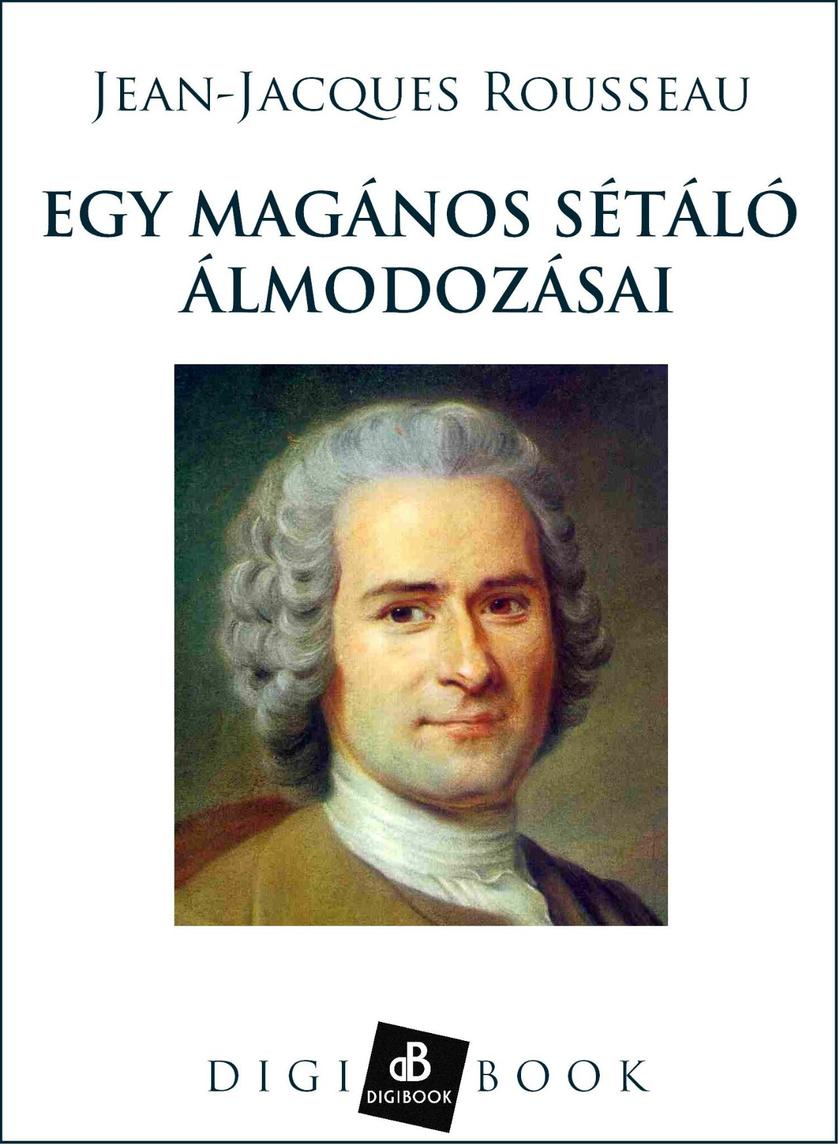
Egy magános sétáló álmodozásai
¥22.73
Egy magános sétáló álmodozásai
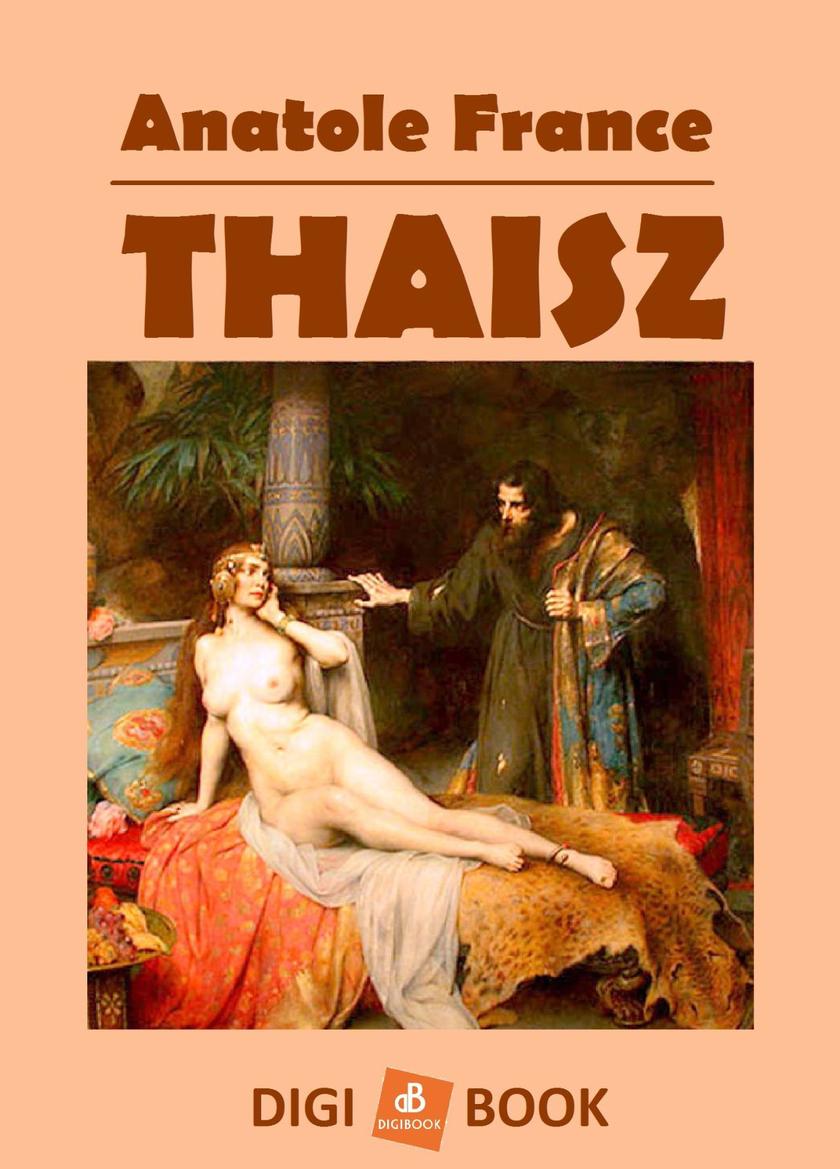
Thaisz
¥22.73
Thaisz

HOLLYWOOD SHAPED MY HAIR
¥22.66
A humorous look at the influence of celebrity style, charting the hairdos (and hair don’ts) James King has fashioned over the years. From the classic ‘Rachel from Friends’ to the questionable David Beckham mohawk, most of us, probably unwisely, have tried to emulate our favourite star’s hairstyles at some point. In HOLLYWOOD SHAPED MY HAIR, James King takes us on a hair-history of cinema.

The Bad Mother
¥22.66
A hilariously honest, and rather sweary, book about parenting from the author of The Bad Cook. From play dates to potty training, from weening to whining or whether to have two, or three, or more! Esther Walker focuses her unique humour on the art of parenting. Fans of Esther’s blog and journalism, or her bestselling Bad Cook book, will not be disappointed. This is every bit as funny, sweary and just plain honest as you would expect. Esther offers up her occasional successes and many failures as examples to parents everywhere: look, this is what happens, you’ll just have to deal with it! Harassed mums and dads will read this and smile, as well as sighing with ‘it isn’t just me’ relief.

The Copernicus Archives #1: Wade and the Scorpion's Claw
¥22.33
The quest for the relics continues. Travel deeper into the mysterious world of the Copernicus Legacy with the Copernicus Archives: exciting, fast-paced novellas that get you close to the characters and the heart of the adventure.Wade and the Scorpion's Claw picks up right where The Copernicus Legacy: The Forbidden Stone left off, with the Kaplan family seeking the next Copernicus relic. Now Wade, the curious, analytical, yet starry-eyed member of the group, leads the chase for another relic through the busy streets of San Francisco while on the run from one of Galina Krause's most treacherous henchmen.Perfect for fans of Rick Riordan and Ridley Pearson, Wade and the Scorpion's Claw continues the thrilling Copernicus Legacy quest and brings one of the characters into the spotlight.Supports the Common Core State Standards
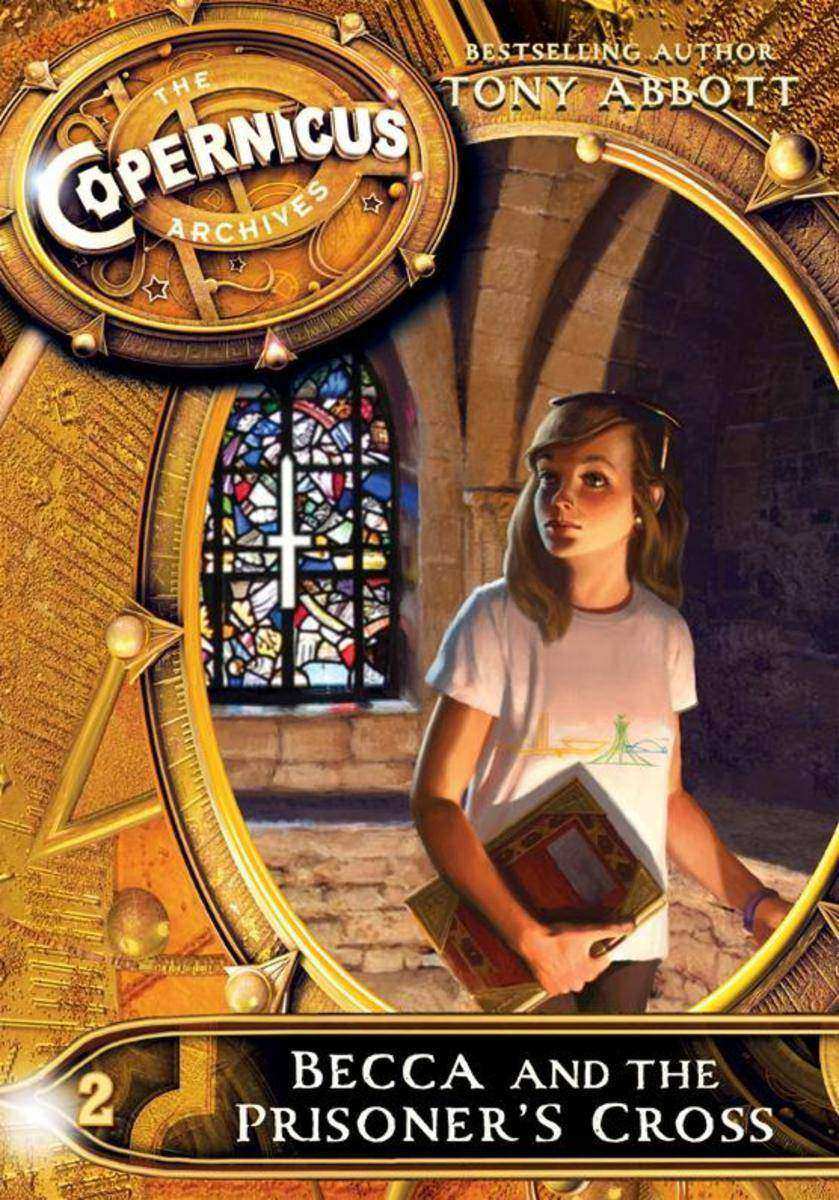
The Copernicus Archives #2: Becca and the Prisoner's Cross
¥22.33
Travel deeper into the mysterious world of the Copernicus Legacy with the Copernicus Archives: exciting, fast-paced novellas that get you close to the characters and the heart of the adventure.The Copernicus Archives #2: Becca and the Prisoner's Cross is studious language expert Becca's thrilling first-person account of the next stop in the Kaplans' perilous journey. As Becca and her family race through London, it's up to Becca to make sense of the strange time blackouts she's experiencing before the evil Teutonic Order beats them to the next relic. Or worse, hurts the people she loves.Perfect for fans of Rick Riordan and Ridley Pearson, Becca and the Prisoner's Cross continues the thrilling Copernicus Legacy quest and brings one of the characters into the spotlight.Correlates to the Common Core State Standards in English Language Arts
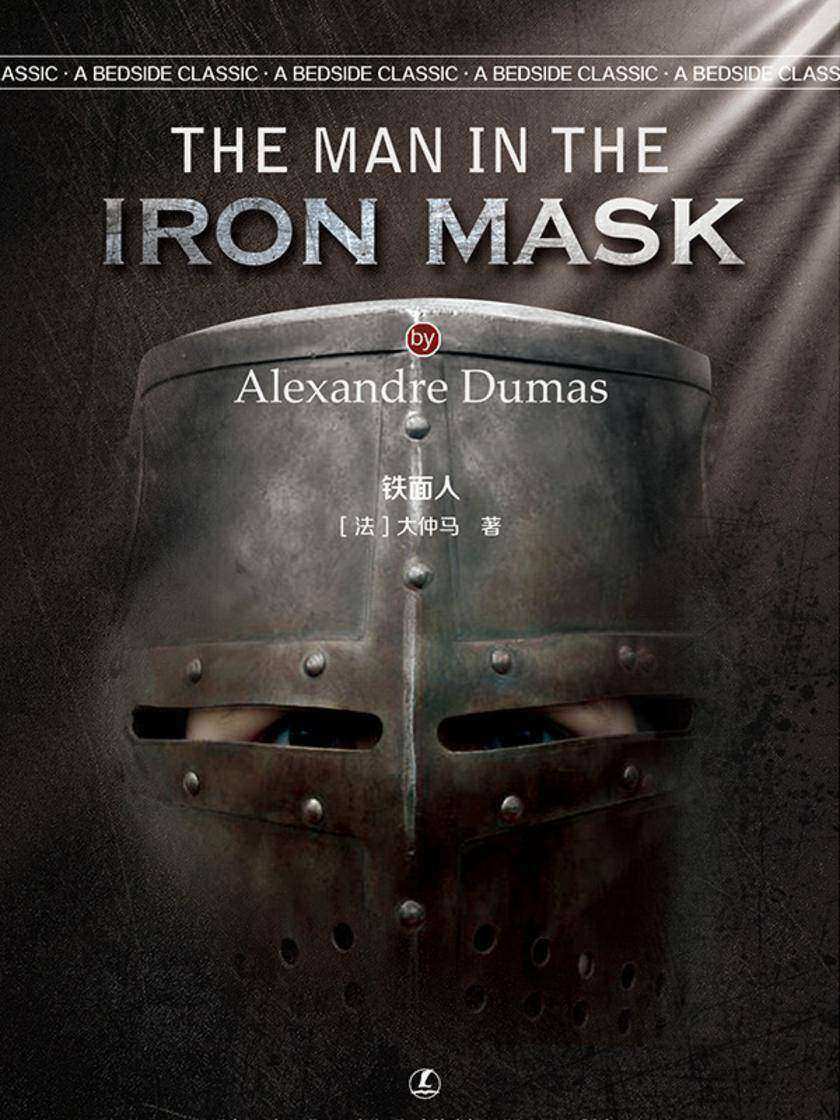
铁面人(英语文库)
¥21.99
本书作为我社“经典英语文库”第15辑中的一种,精选法国著名小说家大仲马的《铁面人》。本书讲述了阿拉宓斯(三个火枪手之一)秘密地从巴士底狱救出了被囚禁的路易十四的孪生兄弟菲力普,并设计让他坐上王位,反把路易十四关巴士底狱。但一昼夜后这一计谋被火枪手队长达尔大尼央识破,他帮助路易十四重登王位,而菲力普则再囹圄,并且脸上永远蒙上了一层面罩。大仲马小说大都以真实的历史作背景,情节曲折生动,往往出人意料,有历史惊险小说之称。结构清晰明朗,语言生动有力,对话灵活机智等构成了大仲马小说的特色。大仲马也因而被后人美誉为“通俗小说之王”。

Nobody’s Son: Part 1 of 3: All Alex ever wanted was a family of his own
¥21.97
Born in a prison and removed from his drug-dependent mother, rejection is all that 7-year-old Alex knows. When Cathy is asked to foster little Alex, aged 7, her immediate reaction is: Why can’t he stay with his present carers for the last month? He’s already had many moves since coming into care as a toddler and he’ll only be with her a short while before he goes to live with his permanent adoptive family. But the present carers are expecting a baby and the foster mother isn’t coping, so Alex goes to live with Cathy. He settles easily and is very much looking forward to having a forever family of his own. The introductions and move to his adoptive family go well. But Alex is only with them for a week when problems begin. What happens next is both shocking and upsetting, and calls into question the whole adoption process.

Map to the Stars
¥21.73
Can one down-to-earth girl plus a very famous boy and a whole lot of paparazzi ever add up to a perfect Hollywood ending?Seventeen-year-old Annie Shelton isn't sure why her mom thinks moving to Hollywood will allow them to escape the drama of their small-time life in Georgia, but she's along for the ride. When Annie's mom snags a gig as makeup artist to a teen movie idol and finagles a spot for Annie to accompany her on his European promotional tour, Annie's pretty sure she'll be fangirling over architectural sights rather than teen heartthrob Graham Cabot.But then of course she actually meets him. As Graham and Annie fall for each other in the most romantic cities in the world, Annie realizes that this turn of events may not be quite as glamorous as she thought. Instead of red carpets and celebrity couple names, they are navigating a minefield of keeping secrets from Graham's fans, overprotective assistant, stage "momager," and beefy bodyguard. And when the paparazzi make an appearance, Annie has to decide whether their love is worth the harsh glare of the flashbulb.Author Jen Malone draws on her real-life experiences as a movie studio publicist to bring you an insider peek at love, Hollywood-style.Epic Reads Impulse is a digital imprint with new releases each month.
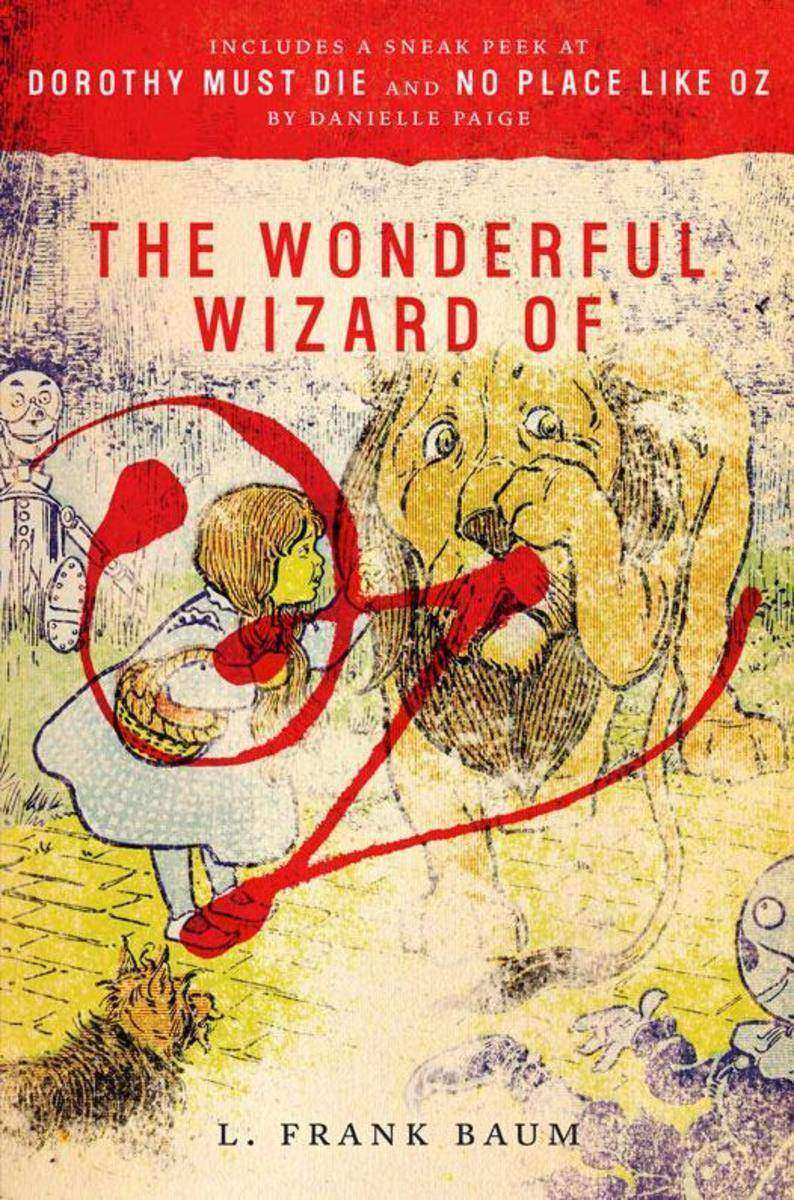
The Wonderful Wizard of Oz
¥21.73
The Wonderful Wizard of Oz is a true classic of American literature, and now it is strikingly repackaged for a modern teen audience! This must-have edition of the beloved, timeless classic also features previews of No Place Like Oz and Dorothy Must Die by Danielle Paige—edgy, reimagined sequels to L. Frank Baum's original story that are perfect for fans of Cinder by Marissa Meyer, Beastly by Alex Flinn, and Wicked by Gregory Maguire.Dorothy Gale found life as dull as the gray prairies that surrounded her Kansas home—until a cyclone transported her to a strange fairy-tale land known as Oz. There, Dorothy discovers a wondrous place filled with Munchkins, flying monkeys, witches, and magic. The only way for her and her dog, Toto, to return home to dear Uncle Henry and Aunt Em is to travel along the road of yellow brick to the Emerald City, where the all-powerful Wizard of Oz may be able to help her. Along the way, Dorothy befriends the Scarecrow, the Tin Woodman, and the Cowardly Lion, who also need the Wizard's help. But while Dorothy desperately tries to find her way back home, the Wicked Witch of the West will do whatever it takes to stop her.
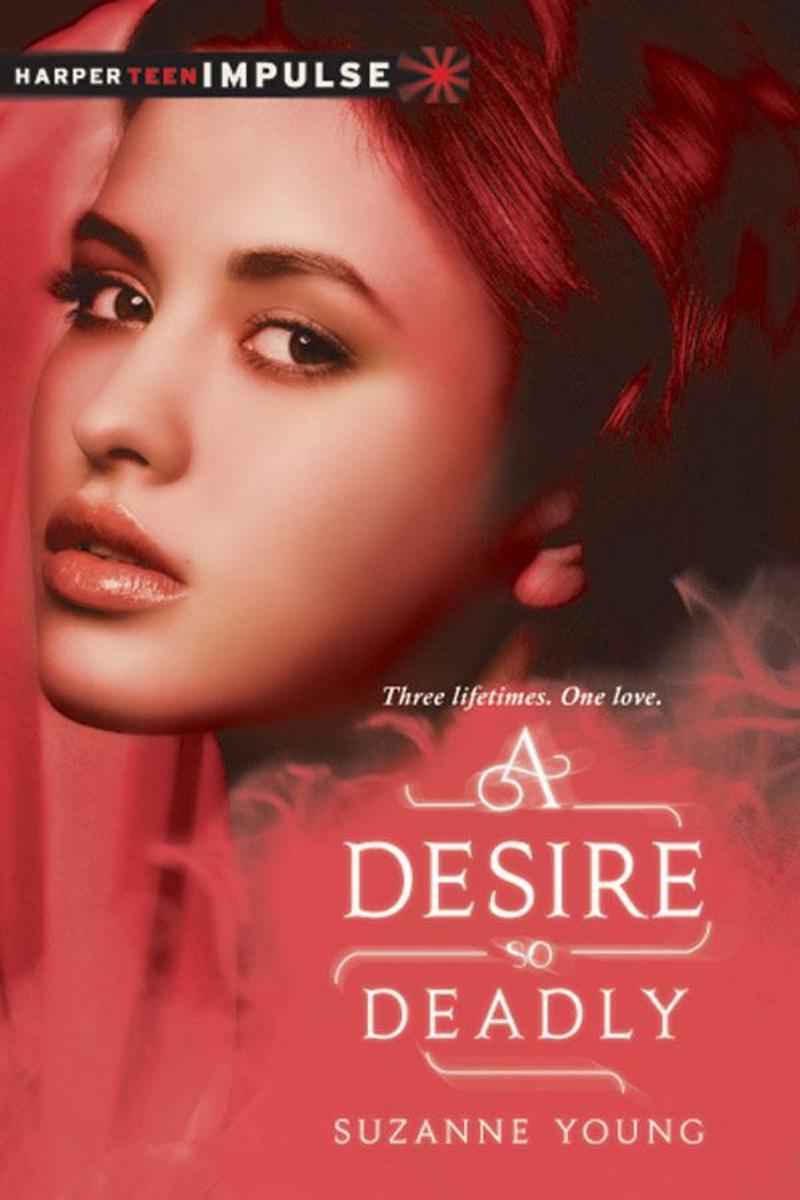
A Desire So Deadly
¥21.73
In this 50-page digital original novella, Suzanne Young extends the dazzling world of A Need So Beautiful and A Want So Wicked.Eighteen-year-old Claire Becks leads a charmed life surrounded by her loving family, great friends, and sexy boyfriend, Ezra. Claire is known for her great advice—and for how easily she puts others at ease. And although she feels occasional bouts of sadness she can't quite place, she is otherwise happy.Then one day a mysterious stranger walks into her family's bakery. Claire immediately senses something about Harlin—something tortured and dark. Even after he leaves, she can't stop thinking about him, inexplicably feeling like there is unfinished business between them.When Lucy, the new girl in town, starts to draw Claire into her world of darkness, Harlin realizes who Claire really is. But Claire will have to realize it too if she hopes to escape the fate of the Shadows.Epic Reads Impulse is a digital imprint with new releases each month.

Playing Keira
¥21.73
From a breakthrough voice in YA fiction comes a captivating digital-original 50-page short story starring a supporting character from the novel You Look Different in Real Life.The premise was simple: Five kids living their real lives, with a new movie about them every five years. But that was before Keira's mother walked out and the cameras captured every heartbreaking detail for the world to see. Now Keira doesn't even know what "real life" means—she only knows how to pretend to be herself.Then she meets Garrett on a bus to New York City. At first, Keira creates a fictional identity and enjoys the freedom of being someone totally different. But as their brief connection turns into something more, Keira starts to see what life could be like if she just stopped pretending and accepted the person she really is.Jennifer Castle's pitch-perfect teen voices and sharp insights—together with a teaser to You Look Different in Real Life—make this story a must-read, especially for fans of Sarah Dessen.Epic Reads Impulse is a digital imprint with new releases each month.

Lie for Me: Griff's Story
¥21.73
A digital-only prequel novella from Romily Bernard, author of the Find Me trilogy.Griff wasn't always the knight in shining armor Wick Tate thinks he is. He had a whole life before he met her, and even though it's grittier than Wick could have imagined, it also made him into the guy she loves.This prequel novella grants readers access to Griff's story from his point-of-view—and it includes some scenes from Find Me, which Jay Asher called "a thriller that keeps picking up speed" and Sophie Jordan hailed as "fast-paced and full of twists," and is told from Griff's alternate perspective!Epic Reads Impulse is a digital imprint with new releases each month.
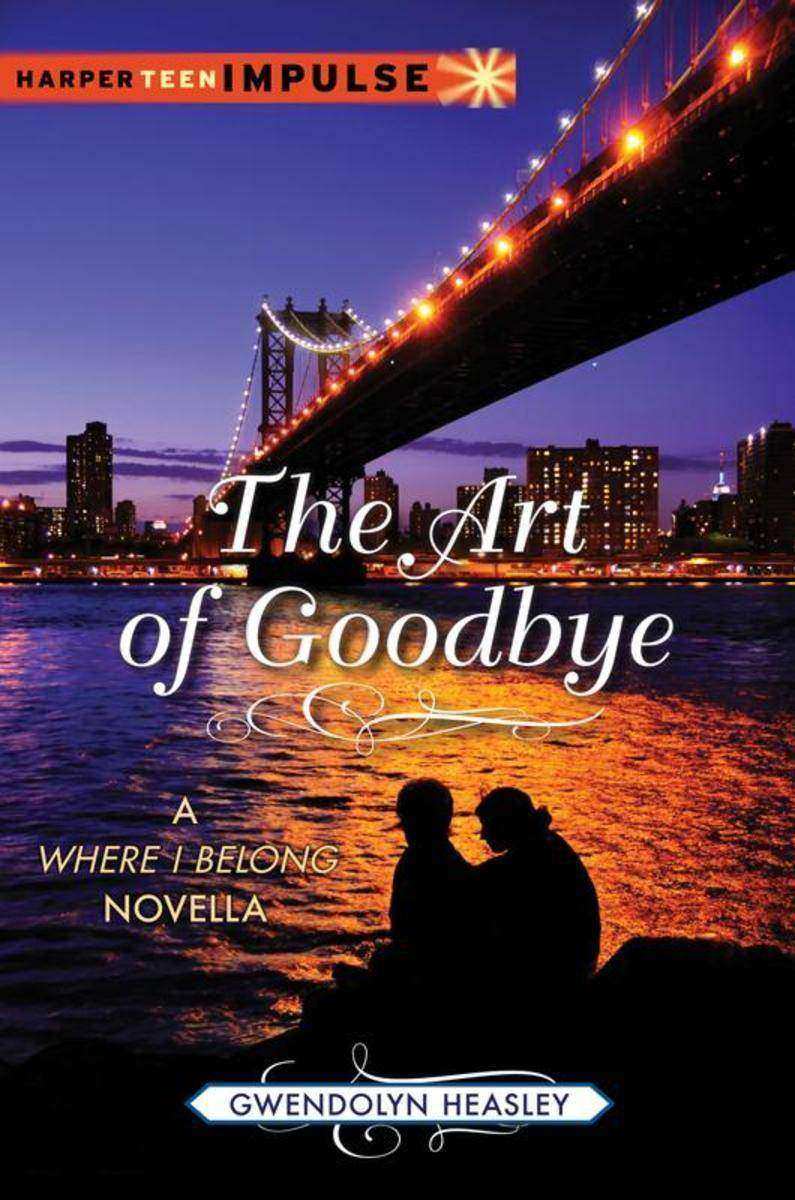
The Art of Goodbye
¥21.73
The heroine of Where I Belong is back in The Art of Goodbye, a romantic digital original novella about first loves and second chances.It's Corrinne Corcoran's last night in town before heading off to college, and she's determined it'll be the most epic night ever. She's planned every detail of each hour of the night, from what dresses she'll wear, to what parties she'll hit, to which of her best friends will be with her. But Corrinne's perfect plan for her last night in New York goes awry when she runs into a ghost from her past, and the boy she's never been able to forget—her ex-boyfriend, Bubby, from Broken Spoke. And Corrinne starts to wonder if her expertly planned goodbye to New York City was as perfect as it seemed. . . . Set over the twelve-hour period before Corrinne sets off for college, The Art of Goodbye will make you believe that true love can find you when you're least expecting it . . . again.Epic Reads Impulse is a digital imprint with new releases each month.

Rising Sun
¥21.73
Rising Sun is a stand-alone novella, a prequel to David Macinnis Gill's acclaimed Black Hole Sun, of which Suzanne Collins said, "Black Hole Sun rockets readers to new frontiers . . . action-packed."Jacob Stringfellow, aka Durango, once had a promising career in the elite armed forces. That was before. Before his father betrayed him and his unit. Before he almost died and had an artificial intelligence flash-cloned to his brain. Now Durango and Mimi (the AI) are figuring out how to get along and figuring out how to stay in the game. Set on a violent and unforgettable dystopian Mars, this is a must read for fans of the author's Black Hole Sun trilogy and for anyone who loves intense, action-packed science fiction.Epic Reads Impulse is a digital imprint with new releases each month.

Nothing Real Volume 2: A Collection of Stories
¥21.73
The second of three digital-only short story collections from teacher and writer for The New Yorker Claire Needell, about coming of age in contemporary America. These original stories are refreshingly honest, poignant, and humorous.This outstanding second digital-only collection of short stories from Claire Needell includes the memorable stories "Frank and Me," "Nothing Personal," "The Switch," and "Mom and Ginger Pete, A Love Story." Each story tells a unique and candid story of teenagers looking for love—from others, and from themselves.Epic Reads Impulse is a digital imprint with new releases each month.

Nothing Real Volume 1: A Collection of Stories
¥21.51
The first of three digital-only short story collections from teacher and frequent contributor to the New York Times Claire Needell, about coming of age in contemporary America. These refreshing stories are written with humor, honesty, and without judgment.This outstanding first digital-only collection includes the memorable stories "Nothing Real," "Change Your Life," "The Bubblemen," and "My Name is Adam." Each story is told from a unique perspective and tells of teenagers looking for love—from others, and from themselves.Epic Reads Impulse is a digital imprint with new releases each month.

Nothing Real Volume 3: A Collection of Stories
¥21.51
The third of three digital-only short story collections from Claire Needell, teacher and frequent contributor to the New York Times, about coming of age in contemporary America. These original stories are refreshingly honest, poignant, and humorous.This outstanding third digital-only collection of short stories from Claire Needell includes the memorable stories "Just Tom Kelly," "The Theory of Reward," "Gone for Good," and "Sugarbabies." Each tells a unique and candid story of teenagers looking for love—from others, and from themselves.Epic Reads Impulse is a digital imprint with new releases each month.
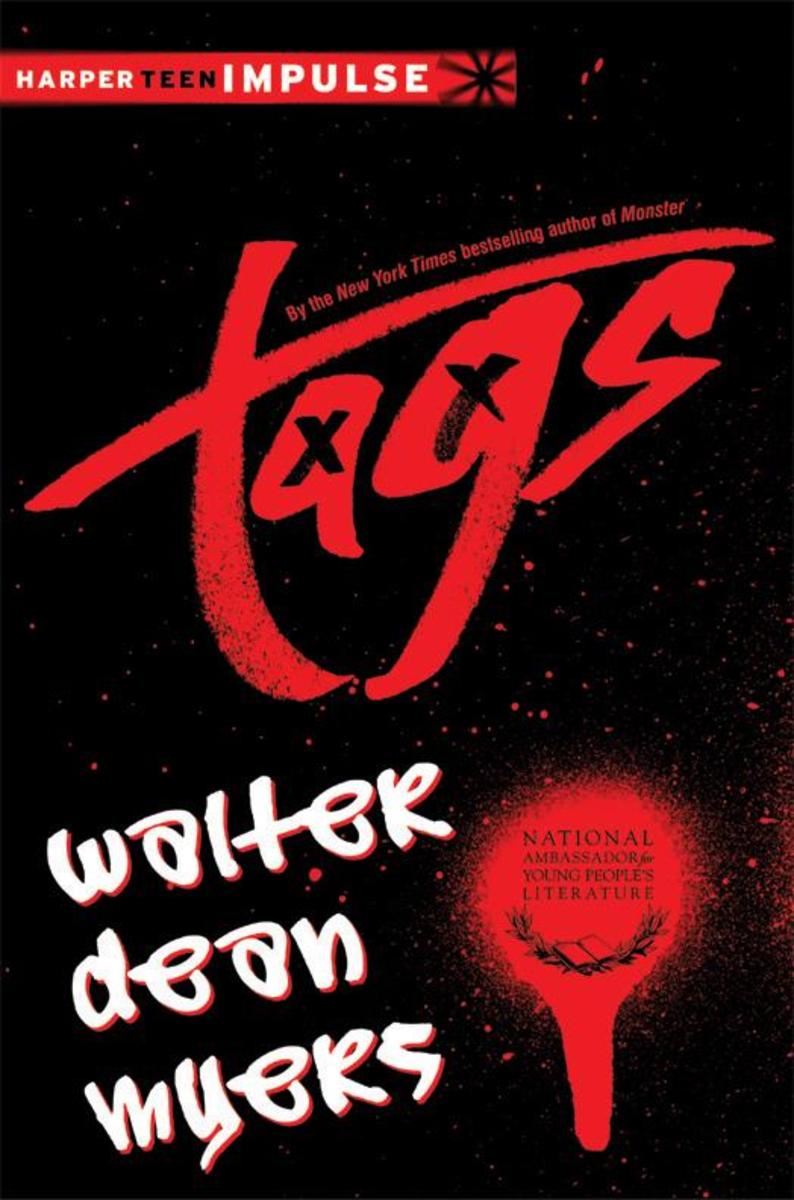
Tags
¥21.51
From Walter Dean Myers, the New York Times bestselling author of Monster, comes this 20-page one-act play. Tags is a look at life and death in New York City, complete with a shocking end.Four New York City teens are shot down in the prime of life. They move through limbo, re-creating their distinctive tags in a Harlem walk-up so that they can "live" forever. But what's the pointHow can you think of living forever if you're already dead?Walter Dean Myers was the New York Times bestselling author of Monster, the winner of the first Michael L. Printz Award; a former National Ambassador for Young People's Literature; and an inaugural NYC Literary Honoree. Myers received every single major award in the field of children's literature. He was the author of two Newbery Honor Books and six Coretta Scott King Awardees. He was the recipient of the Margaret A. Edwards Award for lifetime achievement in writing for young adults, a three-time National Book Award Finalist, as well as the first-ever recipient of the Coretta Scott King–Virginia Hamilton Award for Lifetime Achievement.Epic Reads Impulse is a digital imprint with new releases each month.

Flirting with Maybe
¥21.51
Sweet Evil author Wendy Higgins captivates with this fresh romance filled with alluring chemistry and coming-of-age tension. This 96-page novella of unrequited love between sophomore Ryan "The Kid" McPhearson, who makes the varsity baseball team and finds himself immersed in the life of upperclassmen, and the untouchable senior Brooke Bennet is rife with emotion. Maybe to the outside world a two-year age difference doesn't matter, but this is high school. Everything matters. Higgins's deeply felt characters are tested with romantic highs and lows that are powerful, poignant, and keep us wanting more. Includes a hot teaser chapter from Sweet Peril, the second book in Higgins's paranormal Sweet Evil series.Epic Reads Impulse is a digital imprint with new releases each month.
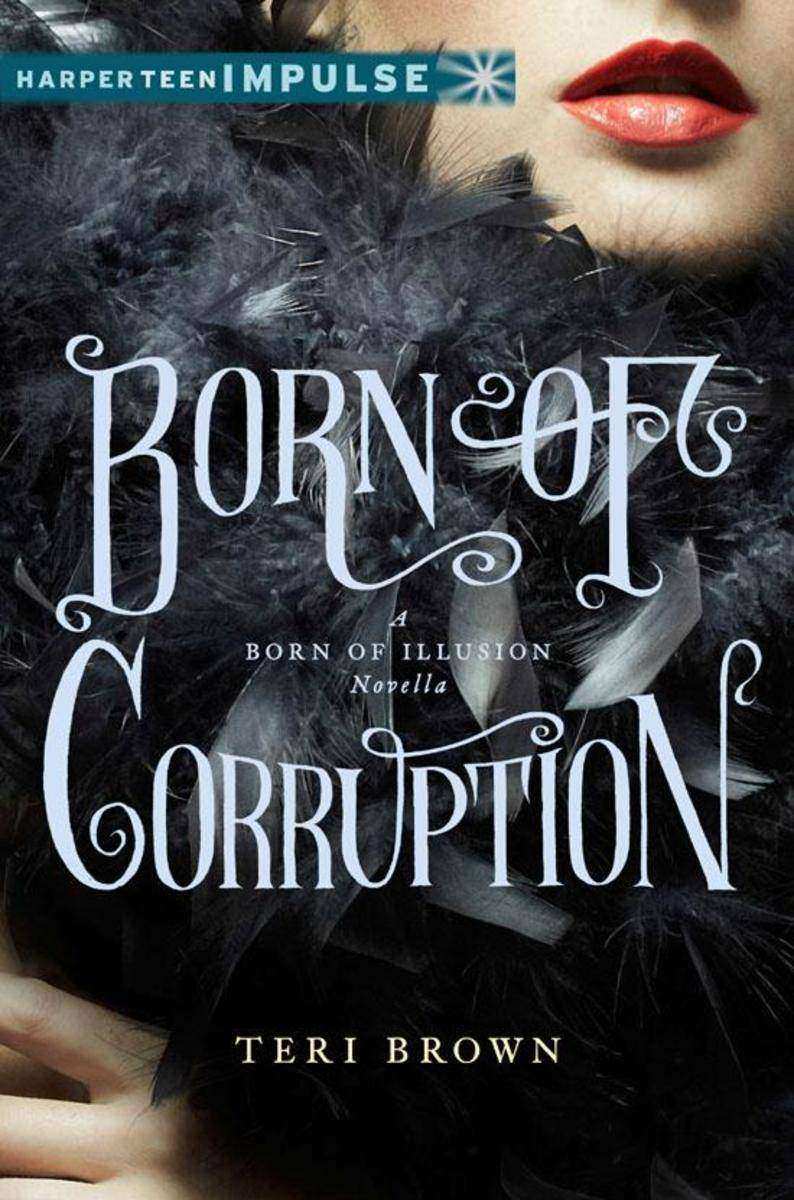
Born of Corruption
¥21.51
Returning to the atmospheric and mysterious Jazz Age world of Born of Illusion, Teri Brown's Born of Corruption is a 64-page companion digital novella about what happens when New York City's most notorious socialites, mobsters, and bootleggers get together for a larger-than-life scavenger hunt . . . and someone gets killed.Cynthia Gaylord, a vivacious blonde flapper and the niece of one of the most infamous mob bosses in New York City, loves scavenger hunts, and the one she's putting together for her best friend Anna's going-away party is going to be the swankiest one ever. But then, Anna Van Housen is no ordinary friend. She is reputed to be Harry Houdini's illegitimate daughter and a magician of the first order—and she possesses psychic powers.Before Anna leaves for a European tour with her vaudeville company, Cynthia throws open the doors of her Gramercy Park mansion for a giant bash, but when one of the guests turns up dead, Cynthia and Anna must join forces to discover the truth. Who is the mysterious dead manAnd which of Cynthia's guests could have killed himCynthia's relatives in the mobOr someone related to the Society for Psychical Research, a shadowy group with a dangerous historyCynthia and Anna have to find out who done it before the coppers are called in . . . something both Cynthia and Anna are eager to avoid.Epic Reads Impulse is a digital imprint with new releases each month.




 购物车
购物车 个人中心
个人中心



